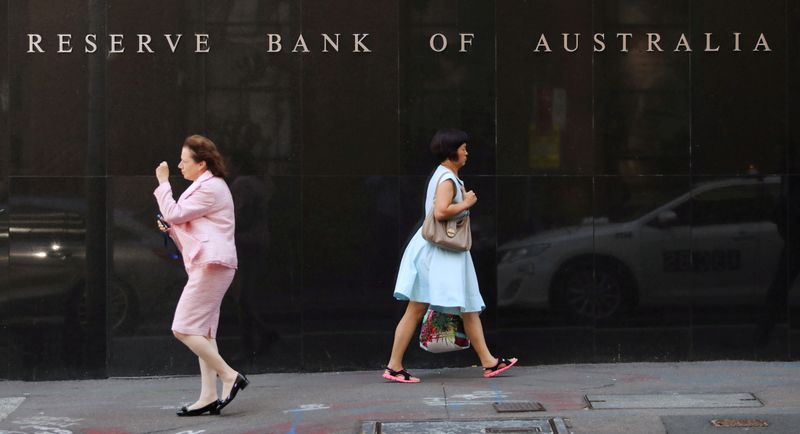By Swati Pandey
SYDNEY (Reuters) - Australia's central bank held its cash rate at an all-time low on Tuesday, in a widely expected decision, and said it will help buttress the economic recovery by maintaining its accommodative approach for "as long as it is required."
The Reserve Bank of Australia (RBA) left rates at 0.25% at its monthly policy meeting, and sounded cautiously optimistic about the earlier-than-expected re-opening of the country's economy, after authorities had managed to largely curb the spread of the coronavirus.
In a short post-meeting statement Governor Philip Lowe noted Australia's A$2 trillion ($1.4 trillion) economy was in the midst of its biggest contraction since the 1930s.
"Conditions have, however, stabilised recently and the downturn has been less severe than earlier expected," Lowe said.
"While total hours worked in Australia continued to decline in May, the decline was considerably smaller than in April and less than previously thought likely. There has also been a pick-up in retail spending in response to the decline in infections and the easing of restrictions in most of the country."
Lowe's (NYSE:LOW) relatively optimistic tone comes in the wake of a significant drop in new infections across most the country, earlier-than-expected easing of restrictions, a solid pick-up in retail spending and a hefty bump in job vacancies.
However, a recent spike in coronavirus cases in Melbourne and the closure of the New South Wales-Victorian state border have cast doubts over Australia's recovery efforts.
The RBA did not make a mention of the recent jump in cases in its statement, only repeating that the nature and speed of the economic recovery remained "highly uncertain."
As a result, fiscal and monetary support will likely be needed for some time, the RBA added.
The RBA has said it would scale up its government bond buying programme if further monetary stimulus was needed while reiterating the importance of fiscal response.
"In that context the governor and the RBA Board will be casting a keen eye (on) the government's announcement on July 23rd," said Stephen Miller, Sydney-based investment strategist at Grant Samuel Funds Management.
The government will publish a 'mini-budget statement' on July 23 setting out plans for fiscal stimulus measures.

"It would not be a surprise if the governor were privately urging the government to maintain the current level of support...or, at a very minimum, to phase out the measures only gradually," Miller added.